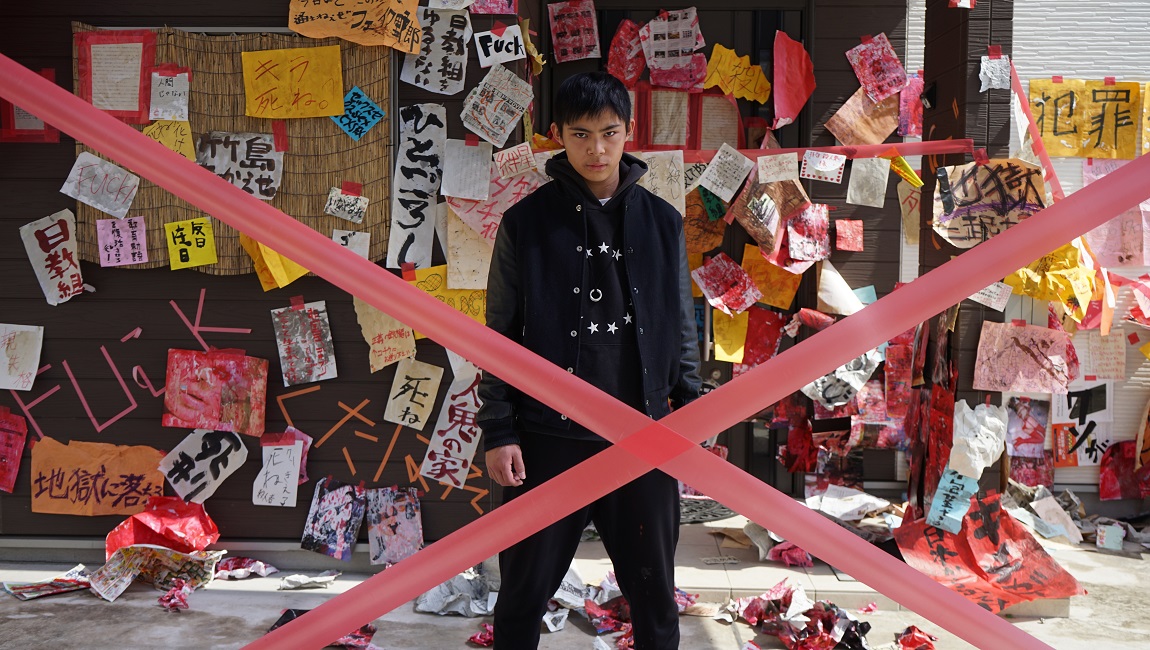The spanning dramaturgy of an ensemble piece is often a precarious balancing act, determined by the intentions of a writer who seeks to utilize the cast in a manifold of manners. Examples include (a) ciphers onto which the film’s concepts are projected, their responses to given circumstances articulating the thematic crux of the work, e.g., Clement Virgo’s Rude; (b) idiosyncratic personalities, whose robust dramatic heft carries a connective tissue which is often more vaguely adaptive to the characters’ respective situations, not dissimilar to (a) but far more malleable and slippery in its handling of character mechanics, e.g., Ryûsuke Hamaguchi’s Happy Hour}; or (c) the total flattening of character into mere invocations of thematic intention, where character might as well be plot — see, for instance, Garry Marshall’s holiday extravaganzas, romps of next to no import. Toshihiko Tanaka’s ensemble work Rei premieres this month in Rotterdam’s main Tiger Competition, and it is a work comfortably situated in category (b), although it faces difficulties unifying the many narrative strands attached to its four distinct characters, culminating in a collection of the forked plotted trajectories that are rendered rather arbitrarily.
Rei states its intentions from the very beginning, a title card elucidating the meaning behind “rei”: a kanji character that has no direct meaning in and of itself, yet simultaneously carries many disparate meanings that blur its margins. “Rei” can only find material meaning in relation to another character, in the combination of kanji characters to produce legibility. Certainly, the narrative that unfurls here is indicative of this sentiment: Matsushita Hikari (Takara Suzuki), a stable 30-something company employee, finds another to fill a void she has heretofore occupied with a parade of theatre plays attended in solitude. This other is Mato Utsumi (played by Tanaka), a deaf landscape photographer whose images in the performance playbills attract Matsushita. The two ignite a relationship whose undulations affect not only the monotonous stability of their lives, but of those around them too.
Cheating husbands, repressed homosexuality, the implosive exhaustion of single motherhood, mental and physical breakdowns, the compulsion for violence as an expression of irreconcilable woes — there’s a staggering degree of crisis explored over Rei’s three-hour runtime, and yet these hours don’t feel at all sufficient. Tanaka’s investigation into the recesses of isolation only ever feels veiled, cordoned off to a fringe superficiality that so often confuses need and desire. Dialogue is always centered around dramaturgy, incessantly punctuating the goals of each scene and their place within the larger matrix of relations. All the while, these relations manifest in platitudinous existentialism, pointedly reflexive of the given happenings and disinterested in anything outside of those boundaries. This lack of complexity is not augmented, of course, but underlined by IFFR’s profile of the director, whose bio concludes with: “The displayed intersection between the beauty of nature and the dark side of humanity is a crucial characteristic in Toshihiko’s work.” Such a prescribed binary succinctly describes the dynamics ladder throughout Rei. It would also be irresponsible not to note how the project’s use of disability feels rather condescendingly aestheticizing, its utility appearing to enunciate the dissonance Matsushita feels and therein consistently failing to humanize Mato and his experience with deafness. Tanaka’s debut is a disoriented work, one whose sundry of machinations fails to ever cohere.
Published as part of IFFR 2024 — Dispatch 2.







